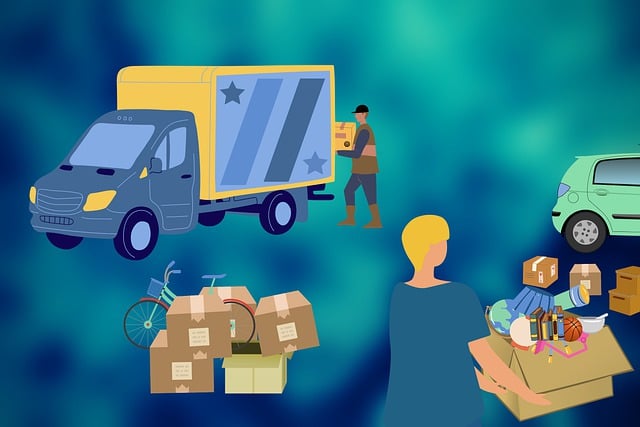5 Simple Tips to Avoiding the Money Traps When Moving Interstate

Moving interstate is an exciting adventure that offers new opportunities and a fresh start.
However, it can also bring about financial challenges if you’re not careful. From unexpected expenses to hidden fees, there are money traps lurking along the path of your interstate move.
In this article, we will guide you through the process of avoiding these money traps and provide you with practical tips to save your hard-earned cash during your interstate move.
So, buckle up and get ready to navigate the financial landscape of your move with confidence!
Money Trap #1 – Thinking DIY is cheaper than hiring movers
One common misconception when it comes to moving interstate is that DIY moving is always the cheaper option compared to hiring professional interstate movers. However, this belief overlooks the fees and risks associated with the DIY approach.
While it may seem cost-effective on the surface, the expenses of renting equipment, purchasing packing supplies, and potential damages to your belongings can quickly add up. On the other hand, hiring movers may come with a higher price tag upfront, but it can save you significant time, effort, and stress in the long run.
By entrusting the task to professionals, you can avoid the physical strain, logistical challenges, and potential mishaps that come with a DIY move. Ultimately, the peace of mind and efficiency provided by professional movers can outweigh the initial cost, making it a more cost-effective choice in the grand scheme of your interstate move.
The part where you can really save money is by booking removalists interstate on Find a Mover, as you can compare several moving options to give you the best deal.
Money Trap #2- Beware of overspending on packing supplies
One of the biggest (and most costly) mistakes that people make when moving is over-purchasing supplies. If you walk into a moving supply store or even a storage facility that sells packing supplies.
There is literally everything under the sun that you can imagine, from tape, tape guns, boxes, packing tape, bubble wrap, butcher’s paper for wrapping fragile items, and markers to label the boxes. Oh, and did we mention the tv boxes for your tv and a port-a-robe clothes moving box?
If you pick up more than you need, you’ll either end up having to lug all of it back to the store or eat the extra cost. This is why it’s important to do a household inventory before you start packing so that you know exactly what you need.
However, going too cheap and getting boxes of all shapes and sizes is going to make it more costly as well, simply because the movers will take longer or an even harder time arranging the boxes of different sizes and especially if they are not durable enough to hold the contents inside the box. Only buy what you need and use free boxes that are durable enough to hold your contents.
Money Trap #3 – Moving when everyone else is moving
One notable disadvantage of moving during peak season and weekends is the higher price associated with these times.
As demand for moving services surges during popular moving seasons and weekends when most people are off work, moving companies tend to raise their rates to capitalize on the increased demand. This price hike can significantly impact your moving budget, potentially stretching it beyond what you initially anticipated.
Choosing the right time to move is an important consideration when it comes to budgeting for your interstate move. For example, if you are able to move in the winter, you can save money on moving fees as this is the slow season for the industry.
Additionally, you may be able to negotiate better pricing on a new home or apartment as sellers are less likely to be pushy about selling at this time of year.
Money Trap #4 – Moving everything that you own
Moving everything you own without decluttering beforehand will result in a higher cost associated with transporting unnecessary items. The more belongings you bring with you, the larger the load and the higher the cost of moving.
Moving companies typically calculate their fees based on factors like weight, volume, and distance. By moving items that you no longer need or want, you are essentially paying to transport and unpack things that may end up taking up space and adding clutter to your new home.
By not spending the time beforehand to rid yourself of items that you no longer need or want in your new state and home, you are simply pouring money down the drain. By decluttering before the move, you can significantly reduce the overall cost by only bringing along the items that truly matter to you.
This not only saves you money but also streamlines the moving process, making it more efficient and allowing you to start fresh in your new space.
Money Trap #5 – Avoid the first quote
Accepting the first quote for a move without exploring other options can lead to several pitfalls. One major pitfall is the potential for overpaying. By accepting the first quote without comparing it to other moving companies, you may miss out on more affordable rates and better deals available elsewhere.
Additionally, you might not be aware of any hidden fees or additional charges that could be included in the first quote. By not exploring other quotes, you could end up paying more than necessary for the same services. It’s also important to consider the reputation and reliability of the moving company.
Accepting the first quote without researching the company’s track record or reading customer reviews can result in a negative experience if they have a history of poor service or unprofessional behavior. It’s always wise to take the time to collect multiple quotes, and customer feedback to ensure you’re making an informed decision and getting the best value for your money.
While there will always be some hiccups during the move, it’s important to focus on the triumphs, too. Whether it’s getting to the airport on time or your kids not crying during the flight, these little victories can make all the difference on a moving day.
It’s a great way to keep your spirits high and help you feel more prepared for any obstacles that may come your way. If you’re still feeling overwhelmed, you can always talk to a mental health professional for support. They can provide you with strategies to handle your stress and help you cope with the transition.





![[INFOGRAPHIC] The Advantages Of Digital Currency And Why The World Is Moving Away From Paper](https://stumbleforward.com/wp-content/uploads/2016/09/coins-currency-investment-insurance.jpg)